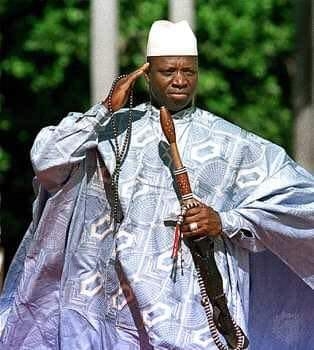By Janet Sankale
Several experts have joined human rights groups urging The Gambia to prosecute crimes committed under the rule of former president Yahya Jammeh.
A panel discussion organised by Uganda and Africa Legal Aid on the sidelines of the Assembly of States Parties’ 20th session in The Hague, the Netherlands, brought together experts to explore the options of justice for the victims.
Evelyn Ankumah, the founding Executive Director of Africa Legal Aid and also a moderator of the side event, expressed concern that victims might be made to wait for long to get justice, and yet there are institutions such as the International Criminal Court (ICC), which can deal with such cases.
She said one of the greatest challenges is the lack of willingness in the sub-region to try cases close to home.
Human rights lawyer Reed Brody explained that the Gambian government is expected to issue, within six months, a proposal on how it intends to implement the recommendations contained in the final report of the Truth, Reconciliation and Reparations Commission (TRRC). President Adama Barrow received the report on November 25, but has not yet made it public. The law allows him a month before he has to present it to Parliament and specified regional and international institutions.
Several participants in the panel discussion favoured a partnership between a hybrid court in The Gambia and the Economic Community of West African States (ECOWAS) to try the people bearing the greatest responsibility for the violations that punctuated Jammeh’s 22-year dictatorship. The supporters of the proposal were optimistic that such a partnership would mobilise the required political support for the eventual extradition of Jammeh from Equatorial Guinea, where he is living in exile, as some of the crimes he is accused of affected citizens of other countries in the region.
Fatima Sandeng, founder of the Solo Sandeng Foundation, said victims want to be involved in the process of bringing Jammeh to justice. She stressed the importance of empathy and meaningful inclusion, and bringing justice close to home.
Fatou Toufah Jallow, an activist, was of the opinion that restorative justice for victims of sexual violence must be made possible no matter the type of court that will be set up.
Salieu Taal, president of the Gambia Bar Association, was in support of the Gambian hybrid model with international elements as being ideal to bring Jammeh to justice, saying the International Criminal Court is too distant.
“We have experienced Gambians for the prosecution to help in the process here in The Gambia,” he said, adding that the hybrid court model, which can be created in such a way as to be victim-centred, would make it easier to mobilise political will as the Gambian “adversarial” system largely excludes victims.
Martin Kyere, a survivor of the 2005 massacre of more than 50 Ghanaians and other West African migrants in The Gambia by the Junglers death squad, stressed that it is crucial to victims and their families that President Barrow implements the recommendations of the TRRC report.
He suggested that alternative legal mechanisms such as African courts and the ICC be explored if the president fails to bring his predecessor to justice.
Brody stated that it might be prudent for Jammeh to be prosecuted outside The Gambia for security reasons. He recalled President Barrow’s promise that there would be justice for Jammeh and agreed that ECOWAS could play an important role in getting the former president extradited.
Yahya Jammeh ruled the Gambia for 22 years during which there were numerous incidents of torture and killing of dissenters, arrest of journalists, sexual violence, and massive corruption.
The long-awaited final report of the TRRC has not yet been released to the public, but is expected to give recommendations on reparations for victims and the pursuit of justice against perpetrators.
The 14,000-page report gives details of the torture, killing, and rape of victims.
Human rights groups in The Gambia have been active in pushing for prosecution for alleged crimes such as the use of death squads and rape, committed during Jammeh’s rule that ended in January 2017. He fled to Equatorial Guinea after losing the presidential elections to Barrow in December 2016.
Barrow pledged to investigate alleged rights abuses by Jammeh’s regime.







